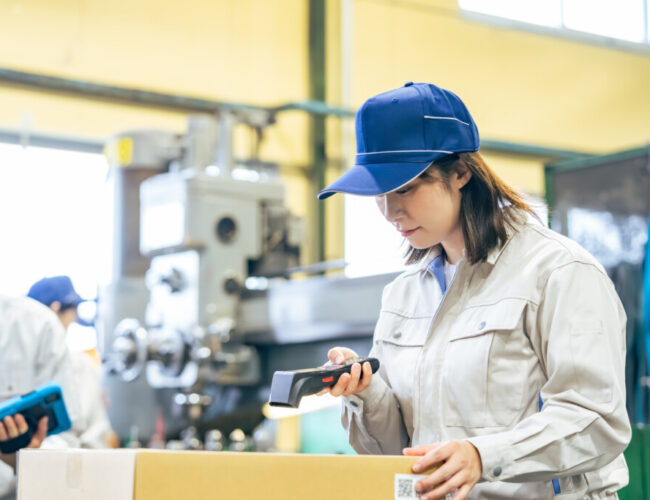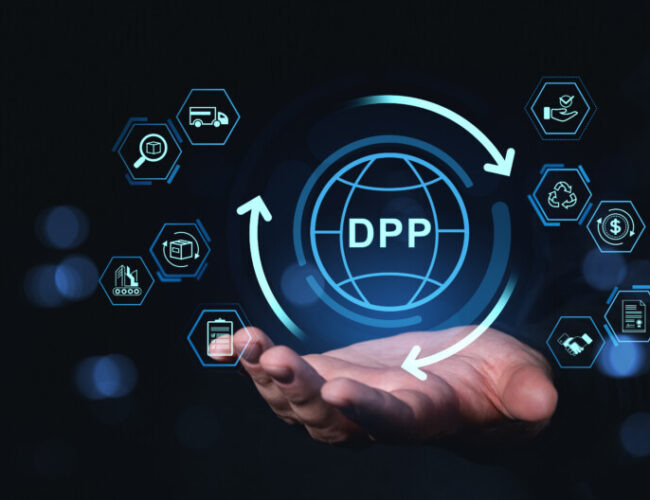With the global marketplace becoming increasingly complex, understanding the origin and journey of your products is essential. End-to-end product traceability establishes a transparent thread that connects raw materials to finished products, ultimately linking them to the people who use them. This results in a chain of benefits for both businesses and consumers, and here’s a clear breakdown of each.

Benefits for Businesses
1. Simplified Regulatory Compliance
With proper traceability systems in place, compliance becomes simple. The FDA Food Safety Modernization Act and similar regulations demand detailed record-keeping that would be nearly impossible without tracking technologies.
Companies implementing excellent traceability protocols can respond to audits with confidence, accessing manufacturing data and supplier certifications in minutes instead of days.
Take the approach demonstrated by leaders like those at Orijin Plus, who’ve shown that getting traceability right requires learning from practical experience and continuously refining systems. When regulatory submissions are due, having comprehensive traceability reduces non-compliance risks and potential financial losses from violations.
2. Faster Response to Disruptions
Supply chain disruptions are inevitable, and how you handle them makes all the difference. End-to-end traceability transforms your response from reactive scrambling to proactive problem-solving.
When issues arise, real-time visibility through IoT sensors and RFID technology means you can pinpoint exactly where problems originate. That kind of speed protects your bottom line and keeps customers satisfied.
3. Surgical Precision in Product Recalls
Nobody wants to face a product recall. When it happens, though, traceability transforms a potential catastrophe into a controlled response. Instead of pulling everything from shelves and hoping you caught it all, precise lot numbers and batch numbers let you remove only the affected items.
A seafood company demonstrated this by using detailed traceability data to manage a recall affecting only specific production runs, saving millions while protecting consumers. The ability to generate trace reports showing exactly which products went where turns what could be a brand-destroying disaster into a manageable incident.
4. Enhanced Quality Control Throughout the Product Lifecycle
Traceability systems track the movement of products and their performance in the real world. By connecting manufacturing data with consumer feedback, you can spot quality issues before they become widespread problems. This continuous information loop helps maintain quality standards and drives product improvement.
5. Stronger Supply Chain Visibility
When everyone in your supply chain operates with transparency, partnerships strengthen naturally. Warehouse management systems integrated with IoT devices create a connected ecosystem where information flows freely.
This visibility helps you identify which suppliers consistently meet quality standards and which might need support or replacement. For industries such as automotive manufacturing or medical device development, where component quality is crucial, this level of visibility is essential for ensuring product safety.
6. Verifiable Sustainability and Ethical Sourcing
Sustainability claims without proof are becoming worthless. End-to-end product traceability backed by blockchain technology and digital chains of custody transforms vague promises into verifiable facts.
You can conduct meaningful life cycle assessments, accurately calculate carbon footprints, and provide sustainability proofs that matter to increasingly conscious consumers.
When you claim your supply chains avoid child labor or support sustainable business practices, traceability systems back those claims with documentation. Companies that can prove their ethical sourcing stand out in markets where greenwashing has made consumers skeptical.
Benefits for Consumers
7. Real Food Safety and Transparency
Scan a QR code on packaging and see exactly which farm your produce came from, when it was harvested, and how it was transported. That’s traceability giving you power. This transparency matters especially for foods that pose higher risks or for families with specific dietary needs.
Parents feeding young children or individuals with severe allergies can make more informed choices when they have access to detailed information about ingredients and sourcing. The Internet of Things has made this level of detail accessible through smartphones, putting information that once required industry expertise right in your hands.
8. Trust That’s Verifiable
Consumer trust has been eroding across many industries because companies have made claims that turned out to be misleading or false. End-to-end product traceability changes this.
When a company claims its products support ethical practices, traceability systems can verify these claims with documentation. As a result, consumers would be willing to pay more. That premium reflects a genuine concern about the product’s components and how they’re sourced.
9. Protection from Counterfeit Products
Counterfeit goods are dangerous. From automotive parts that fail under stress to medical devices that don’t perform as needed, fake products put consumers at serious risk.
Traceability systems create digital product passports that prove authenticity. When purchasing products where safety is a concern, verifying authenticity protects both your wallet and your well-being.

10. Better Product Quality Through Accountability
When companies know that every step of their product’s journey is tracked and traceable, quality improves. There’s nowhere to hide substandard materials or cut corners without leaving evidence.
This accountability benefits consumers through consistently better products. When companies can track consumer feedback back to specific batch numbers and production runs, they can identify and fix quality issues quickly. Products improve over time because the feedback loop between your experience and their manufacturing process is effective.
11. Informed Purchasing Decisions Aligned with Your Values
Maybe you care about environmental impact. Maybe you prioritize products made without exploitative labor. Maybe you want to support local sourcing or specific farming practices. End-to-end traceability gives you the information needed to align your purchases with your values.
Instead of trusting marketing claims, you can verify that products meet your standards. This shifts power from companies telling you what to believe to you deciding based on facts. When transparency becomes the standard, your purchasing decisions become more informed and meaningful.
12. Faster Access to Important Safety Information
When safety issues arise, traceability systems ensure you get accurate information quickly. Instead of broad warnings that may not apply to the specific product you purchased, precise tracking allows notifications to be targeted and specific.
If there’s a recall affecting certain lot numbers but not others, you’ll know definitively whether your product is affected. This reduces unnecessary worry while ensuring that actual problems get addressed promptly.
The Bottom Line
End-to-end product traceability adds clarity, not complexity. For businesses, it means operating with confidence that regulatory compliance, quality control, and supply chain management are under control. For consumers, it means making purchases with the kind of information that builds genuine trust.
As tracking technologies become more sophisticated and accessible, traceability is shifting from a competitive advantage to a basic expectation. Businesses embracing it now are positioning themselves for long-term success, while consumers demanding it are driving the marketplace toward greater transparency and accountability.